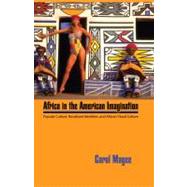Africa in the American Imagination
, by Magee, Carol- ISBN: 9781617031526 | 1617031526
- Cover: Hardcover
- Copyright: 1/24/2012
In the American world, the presence of African culture is sometimes fully embodied and sometimes leaves only a trace. Africa in the American Imagination: Popular Culture, Racialized Identities, and African Visual Cultureexplores this presence, examining Mattel's world of Barbie, the 1996 Sports Illustratedswimsuit issue, and Disney World, each of which repackages African visual culture for consumers. Because these cultural icons permeate American life, they represent the broader U.S. culture and its relationship to African culture. This study integrates approaches from art history and visual culture studies with those from culture, race, and popular culture studies to analyze this interchange. Two major threads weave throughout. One analyzes how the presentation of African visual culture in these popular culture forms conceptualizes Africa for the American public. The other investigates the way the uses of African visual culture focuses America's own self-awareness, particularly around black and white racialized identities. In exploring the multiple meanings that "Africa" has in American popular culture, Africa in the American Imaginationargues that these cultural products embody multiple perspectives and speak to various sociopolitical contexts: the Cold War, Civil Rights, and contemporary eras of the United States; the apartheid and postapartheid eras of South Africa; the colonial and postcolonial eras of Ghana; and the European era of African colonization.






